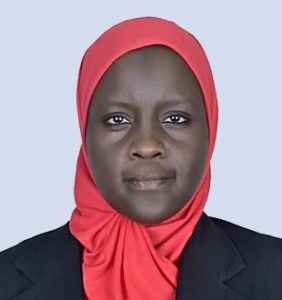
This post by Azizat Omotoyosi Amoloye-Adebayo is reprinted with acknowledgment of its original publication in the Blog of the Institute for African Women in Law. Dr. Amoloye-Adebayo is a member of the Faculty of Law, University of Ilorin, Nigeria and a barrister and solicitor of the Supreme Court of Nigeria. She was a member of the International Center for Law and Religion Studies’ Young Scholars Fellowship on Religion and the Rule of Law class held at Christ Church, Oxford, UK, in 2019. The views expressed in this entry belong solely to the author.
What happens when the “private” space becomes the “public” and ‘only’ professional space?
As of early February 2020, there was no reported case of Covid-19 infection in Nigeria. But by 21 April 2020, there were 665 reported cases and 22 deaths. On 17 April 2020, Nigeria recorded the death of the first high ranking government official, Alhaji Abba Kyari, the Chief of Staff to the Nigerian President Muhammadu Buhari. By this time, the narrative of the contagion had changed from one of ‘contact with persons with travel history’ to that of community spread, at least within the cosmopolitan state of Lagos and the Federal Capital Territory Abuja. The testing procedure had to be stepped up from contact tracing to community testing which led to the discovery of more cases.
With these developments, there may be consensus that the country is facing a high risk of large-scale infection by COVID-19 if the stay-at-home orders and social distancing directives at the federal and state levels are ignored. As a result, more people moved from the public professional space into the virtual professional space in their private homes. Indeed, there are several challenges from these adjustments resulting in changes that may be transient such as the movement of some educational instructions and economic activities to the virtual space. However, there are adjustments that are likely to continue post-COVID-19 situation. A perfect example is the gendered definition of professional space in Nigeria. A change is occurring to that definition which might modify the terms of engagement in gender relations, if not permanently, at least for a long time in the foreseeable future.
As researchers[1] have noted, gender identities and roles are societal constructs, and the Nigerian society is no exception. Status of work and the modicum of respect with which it is viewed are largely determined by whether it occurred in the private space (at home which was the case for most women/female gender) or outside of the home in the public space (typically populated mostly by men/male gender). The denigration of work in the private sphere is not only done by men, even women would look disparagingly at fellow women who are ‘professional’ home workers in relation to domestic chores as well as the care of the elderly and the young. Even though this work requires longer hours than you would put in an average white-collar 9-5 daily job outside of the home with no holidays, time-offs, or weekends. Homework is often taken for granted, not remunerated, not considered valuable in terms of family income (like reducing cost for a cook, cleaner, carer, driver for school and shopping, etc.) and little or no consideration is given for the well-being of the woman concerned.
Interestingly, for varied reasons ranging from the need for additional income due to escalating costs of maintaining a family, to self-awareness, several women now combine work both in and outside of the home. However, while engaged in the public space for ‘professional’ jobs like men, they nonetheless have to find personally constructed strategies or ‘coping mechanisms’ (since it is considered their sole duty and not joint responsibility) to juggle the domestic chores as well.
These double responsibilities women bear often come with little to no help from a spouse in most cases, and at great cost to their physical and mental health. Again, the societally accepted denigration of the domestic chores as less important, foster a culture of passivity in most men who then consider it out of their sphere of concern because it occurs in the private space. On the flip side, out of the need to satisfy societal expectations of self-worth, some women who already engage in a day’s job worth in the private sphere feel compelled to seek vocations in the public sphere even where such is not necessarily required for survival.
Although there are a lot of challenges and problems that have arisen as a result of the lockdown and the restriction orders in Nigeria, such as domestic abuse and physical assault, I also see some positivity in terms of demystification of the false public-private dichotomy in the definition of the professional space. Almost everyone now works from home, and some men are for the first time appreciative of the crucial significance of multi-tasking as a professional technique. Additionally, they are understanding that it requires ‘professionalism’ to keep the home in order to get any work done.
It may be too early to determine the definite trajectory of future gender relations in terms of the professional space. For now, at least, there is enough ground to surmise that it would not be business as usual. The experience of the lockdown and restrictions in terms of forcing everyone to survive in the same private professional space could serve as a template for both men and women to renegotiate better outcomes in post-COVID-19 gender relations.
[1] For example, Judith Gardam, ‘A Gender Aware Approach to Legal and Policy Strategies for Achieving Access to Modern Energy Services in Sub-Sharan Africa’ in Yinka Omorogbe and Ada Odor eds, Ending Africa’s Energy Deficit and the Law, Achieving Sustainable Energy For All in Africa (Oxford University Press 2018), 187.
